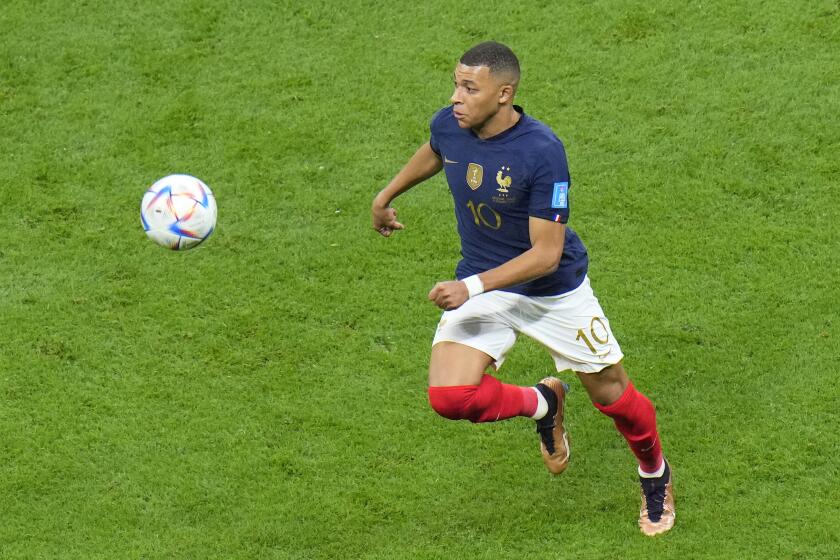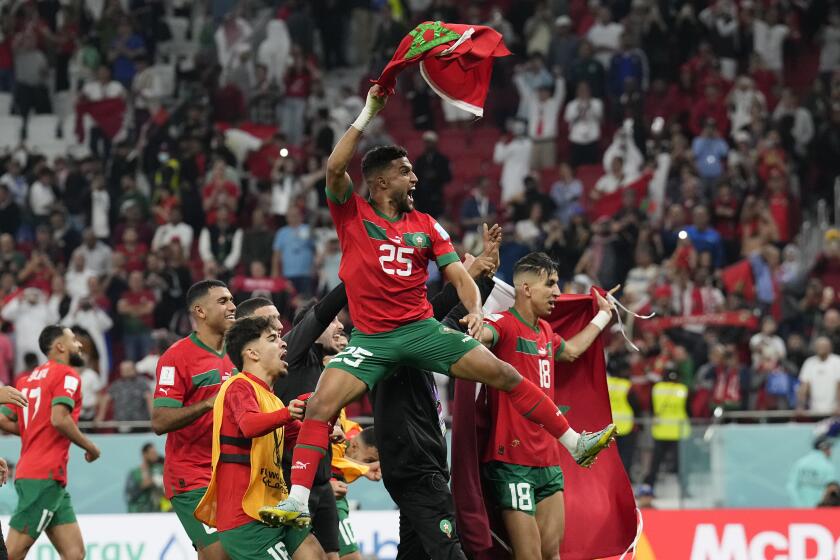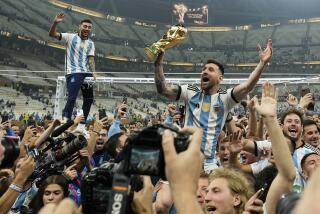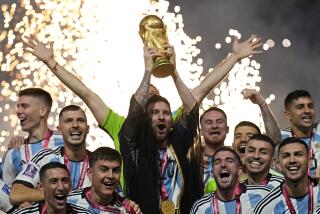News Analysis: Morocco won something much more valuable than third place at World Cup — respect
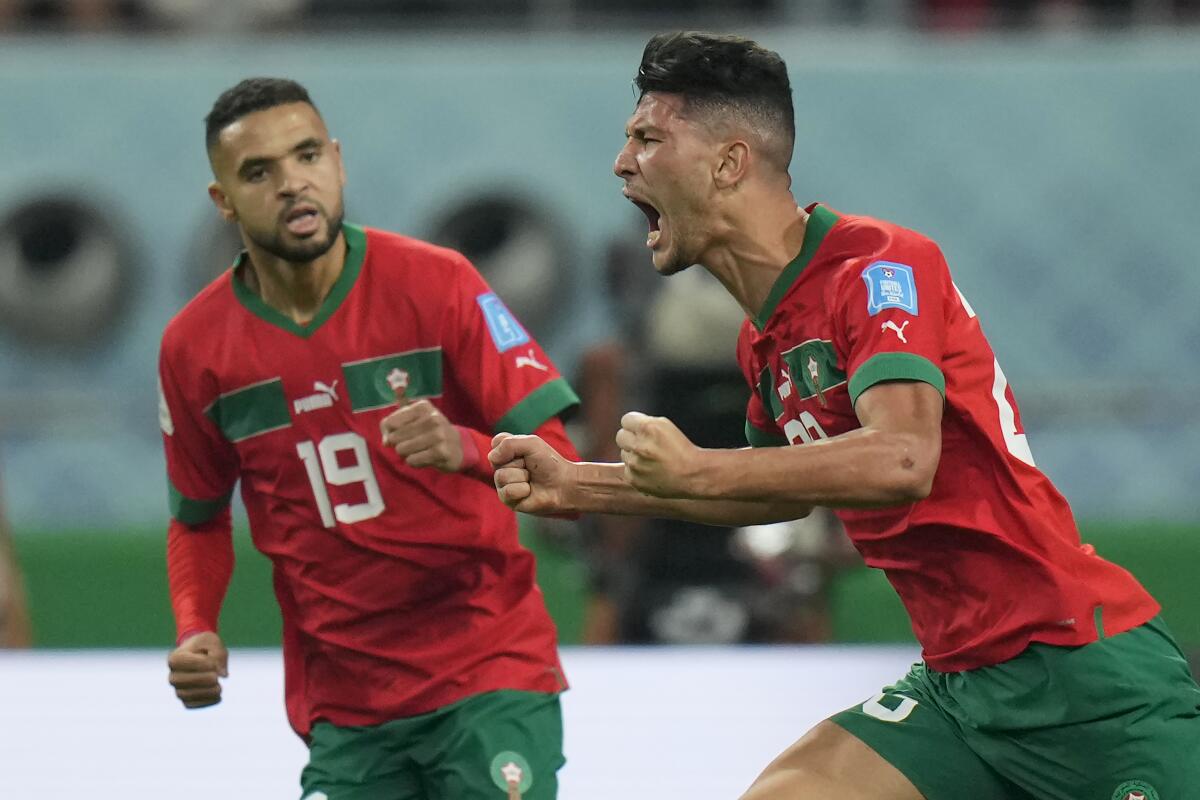
- Share via
AL RAYYAN, Qatar — Croatia’s World Cup team earned bronze medals Saturday, the players lining up patiently to cross a platform where they received their awards from FIFA President Gianni Infantino after their 2-1 victory over Morocco in the tournament’s consolation game.
France and Argentina will play for an even larger prize Sunday in the tournament final.
Yet the biggest winner in this World Cup might be Morocco, which, even in defeat, earned something more valuable than a medal or a trophy.
It won respect. It beat some of the world’s biggest teams and eliminated some of the world’s best players, proving it isn’t who you are but what you do that matters most.
Start times and TV and streaming options for the World Cup semifinal match between France and Morocco. The winner faces Argentina in Sunday’s final.
Morocco didn’t defy imagination; it inspired it.
“Football makes people dream, especially children,” Morocco coach Walid Regragui said. “We have allowed them to dream. And they now dream of being footballers and getting to the World Cup.
“That is priceless. It means more than winning any match.”
Croatia came to Qatar a contender, ranked 12th in the world, a finalist four years ago when it finished second to France. Morocco came here as little more than an afterthought. It hadn’t won a World Cup game this century and had won only two in its history, advancing past the group stage once.
It won three times here. It beat No. 2 Belgium in group play, eliminated Spain, a past world champion in the round of 16, then knocked Portugal and Cristiano Ronaldo out in the quarterfinals, becoming the first Arab and first African country to reach the World Cup semifinals.
It made the impossible seem possible. And for people on two continents, that was bigger than anything that happened on a soccer field.
“We were given a 1% chance of winning the World Cup. Now we are one of the top four teams in the world,” Regragui said. “If you told me we would do that before the tournament, I would have accepted it straight away.

“Every time we won a match and we saw the Morocco people taking to the streets, it stuck a chord for us. When we wake up tomorrow morning, we’ll take stock and I think we’ll all realize we had a fantastic achievement here.”
Even as Morocco struggled to the finish line Saturday, limping exhausted and injured through its seventh game in 24 days, it never quit. Nor did its large and enthusiastic red-clad fan base, whose incessant whistling and choreographed chants became a big part of the soundtrack of this World Cup.
By the end, the rest of the world was cheering Morocco as well.
“I would like to salute Morocco,” Croatia coach Zlatko Dalic said at the start of his postgame news conference. “It was a great fight they put up. They were tired, they were exhausted. But they put up a great fight.
“They remind me of us four years ago.”
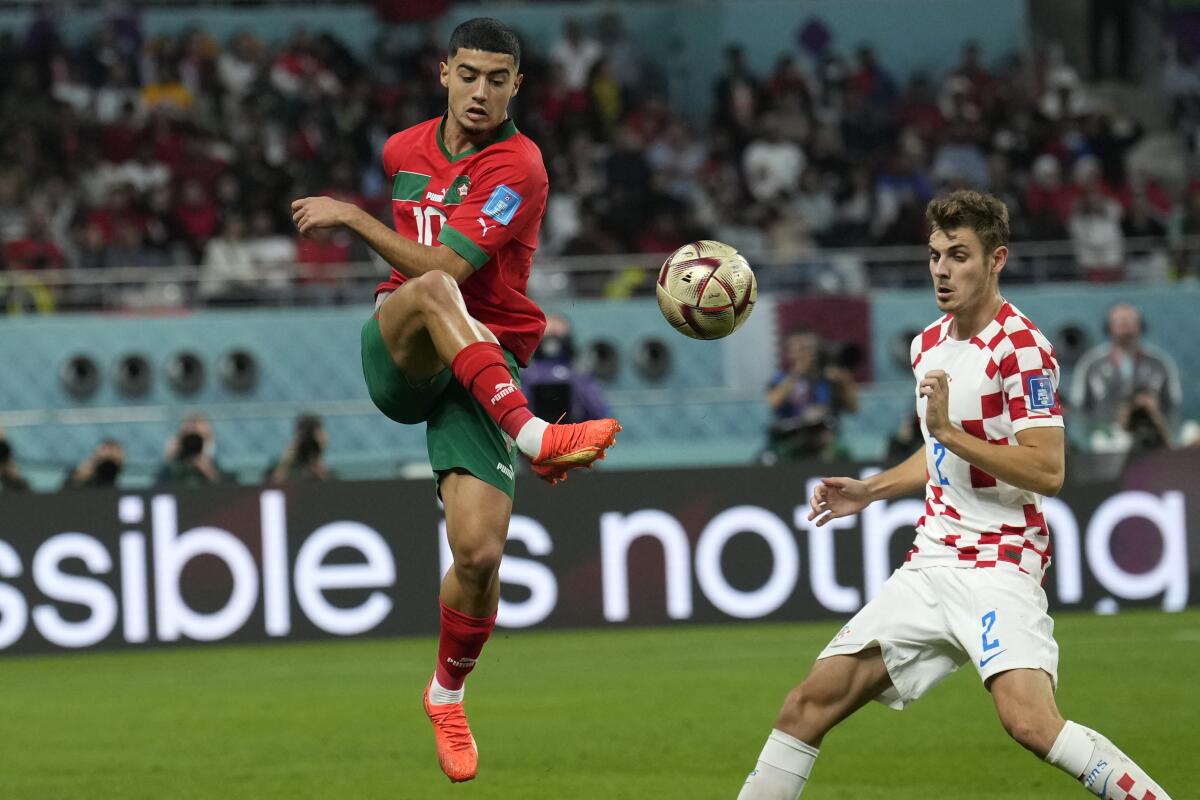
Four years ago, Croatia made the final, the greatest achievement of a golden generation that played its final World Cup game Saturday. And fittingly Luka Modric and Ivan Perisic, the core of that generation, had a role in its final World Cup victory, teaming up on a well-designed set piece that ended with Josko Gvardiol heading in the game’s first goal in the seventh minute.
Modric, a former Ballon d’Or winner and Croatia’s all-time leader in appearances, sent a free kick toward the near post for Perisic, the team’s leading active goal scorer, who peeled away from his defender to head the ball back into the center of a box for Gvardiol, who nodded it in.
The assist gave Perisic a hand in his 11th World Cup goal since 2014. Only Argentina’s Lionel Messi has been involved in more. And only Messi has played in as many World Cup games over that span as Modric, 37, and Perisic, 33, who were starting for the 17th time.
Geographically, Morocco is a North African country. Culturally and linguistically, it is part of the Arab world. Its World Cup success is an inspiration in both places.
Croatia’s lead didn’t last long though, with Achraf Dari bouncing in a header to tie the score less than two minutes later. But Croatia went back in front to stay three minutes before the intermission when Mislav Orsic curled a right-footed shot just over the outstretched right hand of Moroccan goalie Yassine Bounou and in off the far post.
Gvardiol is 20, his goal Saturday making him the youngest Croatian to score in a World Cup. Orsic is 29, young enough to be in the picture for the next World Cup.
“This is the end of the cycle for us, the end of process. This is the last World Cup for some of my players,” Dalic said. “But we have some young players and they are the hope for Croatia. I believe Croatia has a great future.”

Regragui says he believes the same about Morocco. He emptied his bench in the second half, keeping a promise to give game time to players who hadn’t appeared in a World Cup game. Yet the Atlas Lions kept pushing to the final whistle, which sounded just seconds after Youssef En-Nesyri’s header just missed the crossbar, dropping harmlessly onto the roof of the net.
“Through experience you learn,” said Regragui, who sees his team’s success inspiring a golden generation for African soccer. “The doubts were in the mind of everybody before this tournament. We’ve done better than expected, but it’s not enough. We’ve proven that it’s possible to go far in this tournament with hard work. You build that DNA gradually and we need to build it throughout the continent.”
“I’m sure that in 15 years,” he added, “an African country will win the World Cup.”
And that certainly is more valuable than any precious medal.
More to Read
Go beyond the scoreboard
Get the latest on L.A.'s teams in the daily Sports Report newsletter.
You may occasionally receive promotional content from the Los Angeles Times.

